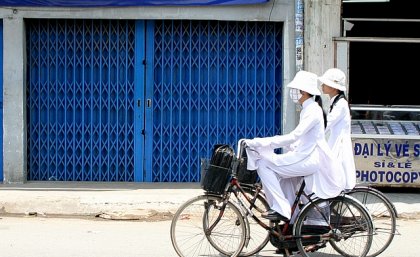
A University of Queensland researcher is leading a project designed to combat the fact that women across the world are persistently disadvantaged by transportation systems.
School of Geography, Planning and Environmental Management researcher Dr Derlie Mateo-Babiano said transport disadvantage harmed economic and social productivity in many societies.
“In many parts of the world, including Asia, women continue to have poor access to opportunities and limited participation in transport-related careers, and remain under-represented in transport decision-making,” she said.
“There is a poor understanding of women’s transportation needs and limited awareness of gender-differentiated transportation requirements. For example, women take on more caring responsibilities and generally combine multiple errands into one trip.
“This poor understanding has denied women full participation and limited their access to opportunities, resulting in significant in economic and social productivity losses to society.”
Dr Mateo-Babiano, who has just completed a three-month visiting professorship at De La Salle University in the Philippines, is leading a new Australia-ASEAN Council (AAC)-funded Women in Transport Leadership project involving partners in Australia, the Philippines, Vietnam, Cambodia, Indonesia and Malaysia.
She said the project was the first Women in Transport Leadership knowledge network in the Australasian region solely dedicated to empowering women and to increasing the number of female transportation leaders.
“The project team will harness a wide perspective of female leadership to develop innovative solutions to address issues of gendered transportation systems that have persistently affected Australian and ASEAN regional productivity and economy,” she said.
The knowledge network would strengthen women’s capabilities and increase leadership opportunities to address diverse gender and transport challenges.
“The project also addresses barriers and facilitators to change, and opportunities and wider implications of achieving more gender-sensitive transportation systems,” she said.
“We aim to create stronger representation and advocacy of women’s issues in transportation.”
Project partners are the University of the Philippines-National Center for Transportation Studies; the Indonesia Transportation Science Society; the Transportation Science Society of Malaysia; Cambodian transport engineer Ms Pharinet Phang; and the Transportation Science Society of Vietnam.
Media: Dr Derlie Mateo-Babiano, i.mateobabiano@uq.edu.au, +61 7 3365 3916.
.jpg)












